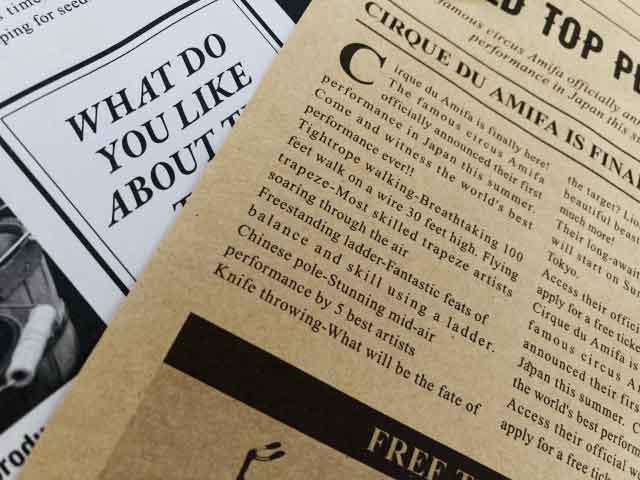国際教養大学の入試小論文
この記事が役に立つ人
- 国際教養大学の英語小論文の書き方で悩んでいる受験生
- アカデミックライティングの基礎的な部分で躓いている人
こんにちは。
旺文社の「英単語ターゲット1900(6訂版)」という受験生にとっては定番の単語帳を使って難関大学のひとつとされる国際教養大学の入試に必要な英語小論文を書いてみました。
- 国際教養大学の入試小論文をターゲット1900を使って書いてみました。
- 国際教養大学令和2年度A日程問題に対する解答例
- 解答例の小論文中ターゲット1900収録語の数
- よくある疑問:難単語を使って英語小論文を書くべきか?
- 難単語を簡単な単語に置き換えると印象は変わるのか?
- 戦略的学習法:Passive VocabularyをActive Vocabularyへ
- ターゲット1900を利用した国際教養大学入試小論文攻略法
- 英語小論文初心者へのアドバイス
国際教養大学の入試小論文をターゲット1900を使って書いてみました。
使った問題は令和2年のA日程の問題です。
(問題文)
Many of the great people in history have said they experienced some kind of force or voice or a sense of destiny that guided them to take action at some point and changed the course of their lives. For example, Napoleon Bonaparte believed there was a ”star” in the sky that guided him to make the right move during military campaigns. For his part, Johann Goethe, the German statesman, also believed there was a “spirit” guiding him to fulfill his destiny. In more recent times, Albert Einstein talked about a kind of “inner voice” that guided the direction of his thinking. All of these are examples of what Leonardo da Vinci called “having a sense of fate.” Today, we call it having a “sense of purpose.”
While most people perceive such feelings as spiritual experiences, more and more social scientists nowadays are beginning to understand that such feelings are, in fact, practical signs of a person’s unique traits. Scientists agree that all of us are born unique, and that such uniqueness is first observed in the kinds of questions children ask in order to find answers about their immediate world. Scientists believe that the kinds of questions children ask reveal their natural abilities. As children go through schooling, that tendency to ask questions disappears and is replaced by information and knowledge that people use in order to pass tests and navigate through life.
Scientists believe that failing to cultivate one’s sense of fate can lead people off on a dangerous path. After twenty years of study, researchers at Harvard University concluded that when adults fail to develop a sense of direction to guide the course of their lives, many end up choosing jobs that do not suit them. Gradually, the same people develop mental problems associated with depression and a lack of self-worth.
In the book “Mastery,” writer Robert Greene explains that the process of finding one’s sense of purpose happens in three stages: first, people need to reconnect with the curiosity they experienced as children and rediscover their sense of uniqueness. Second, once the connection has been established, people need to re-evaluate the choices they have made in life regarding career, hobbies, partner, and current job. This stage can be very difficult for most people because it can lead them to make life-changing decisions. Finally, people need to change the way they see their career and life, going from a straight line to a journey with surprises and learn to plan for such events.
Some 2,600 years ago the ancient Greek poet Pindar wrote, “Become who you are by learning who you are.” What he meant is the following: You are born with particular set of qualities and talents that, if developed, can guide the course and quality of your life. If you listen to that inner voice and work at cultivating your natural talents, you can become the person you are meant to be: a Master.
問
Write an essay about the following topic:
The article explains different ways to develop a sense of purpose in life. Of the ways the author identifies to develop a sense of purpose in life, which do you think are the most useful to you personally, and why?
A successful essay:
1. Has at least 300words(minimum)
2. Has at least four paragraphs(minimum) including an introduction and a conclusion
3. Answers the question(s) being asked with a clearly stated main idea/opinion
4. Includes relevant examples from your own knowledge and/or experience
5. Does not quote directly from the reading text
Your essay will be evaluated on content, organization, vocabulary and grammatical usage.
(問題文の日本語訳)
歴史上の多くの偉人が、人生のある時期に自らを導き、その後の人生行路を変えることになるある種の「力」や「声」や「運命」を感じたと述べている。 例えば、ナポレオン・ボナパルトは軍事行動中に彼を正しい方向へと導く夜空の「星」があると信じていた。ドイツの政治家、ヨハン・ゲーテもまた自分の運命を全うすることへと導いてくれる「精霊」の存在を信じていた。より近年では、アルバート・アインシュタインが自分の思考の方向性を導く「内なる声」について語っている。これらすべてが、レオナルド・ダ・ヴィンチのいう「運命を知ること」の具体例である。今日、我々はそれを「目的を知ること」と呼んでいる。
たいていの人がこうした感覚を霊的な経験として認知しているが、最近になって、より多くの社会学者が、実はこうした感覚は人間が持つ固有の特徴が具体的にあらわれた兆候であることを理解し始めている。我々は全員が他とは異なる独自性をもって生まれてくること、さらにはそうした独自性は子供が目の前にある世界について答えを得るための質問のなかに初めて見いだせるということで科学者の考えは一致している。科学者達は子供が発する質問が彼らの生まれながらの能力を明らかにすると考えているのだ。子供達が学校教育を経ることで、こうした疑問を抱く傾向は消えていきテストに合格するためや世渡り上手になるための情報や知識にとって代わってしまう。
人が運命を察知する能力の獲得に失敗することが危険な道を避けることに繋がると科学者は考えている。20年に及ぶ研究の末に、ハーバード大学の研究者が結論づけたことは大人が自らの人生の方向性を導く感覚を持たない時、多くの者が自分には合わない仕事を結果的に選ぶことになったというものだ。次第にそうした人は鬱や自尊心の欠如から心を病むことになる。
著書「マスタリー」の中で、作家ロバート・グリーンは人間が目的意識を見出すプロセスは3つのステージで起こると説明している。第1ステージでは、子供の頃にもっていた好奇心と繋がり、自らの独自性を再発見することが必要である。第2ステージでは、一旦その繋がりが確固としたものとなったならば、仕事、趣味、配偶者、現在の仕事など人生で選んできた選択肢を再評価する必要がある。こうしたことはほとんどの人にとって危険なことだ。なぜなら、それが人生を変えてしまうような決断に繋がりえるからだ。最終ステージでは、自分の仕事観や人生観を変える必要がある。それまでまっすぐに伸びていた一本道から驚きに満ちた旅へとでることになるので、そうしたことへの準備をしておく必要がある。
約2600年前、古代ギリシアの詩人ピンダロスは記している。「汝自身を知ることで汝自身となれ」彼が意味したこととは次のようなことだ。もしうまく伸ばしたならば、自分の人生の方向性や質を決めることになる資質や才能をもってあなたは生まれているのだ。もしあなたが内なる声に耳を傾け、生まれながらの才能を伸ばしていくならば、あなたは本来なるべき人間になることができる。自らの人生の主となるのだ。
国際教養大学令和2年度A日程問題に対する解答例(目次へ)
上記の令和2年A日程の問題に対するターゲット1900を利用した解答例
What Robert Greene describes is the most useful and reasonable to me. This writer divides the process of finding our sense of purpose in life into three stages. Each stage is a crucial phase of life when we reflect on our life and have to overcome difficulty in it.
First of all, it is rather easy for us to accept the idea that all of us are born with our uniqueness. When we are young children, we are very creative because we are free from any social obligations and rules. For instance, even when I played a game with my friends, we would often add a new rule to it in our own way. The only rule among us was “everything is OK.” However, through education and discipline at home and school, our creativity diminishes as time goes by. Therefore, as Greene explains that the discovery of the curiosity we had in childhood makes us realize our unique characteristics, I believe it can be applied to most of us.
Then, to review our life and find out what we really favored in our childhood is useful to make a good decision. In the course of life, a life-changing moment urges us to make a big decision. In my case, right before I graduated from junior high school, I had to choose which high school I should go to. I was nearly convinced by my homeroom teacher to go to a local high school some of my classmates were going to. However, I was not persuaded to do so because I remembered I had been fascinated by music since my early childhood. After careful thought, I decided to learn music overseas. Now I am sure that I have found what I like from the bottom of my heart.
Luckily, once we find what we really like, we can pursue it no matter what may happen. As Greene implies, in the final stage, we need to alter our previous views and venture into a journey. Actually, I encountered numerous obstacles while I stayed abroad. Racial prejudice and language barriers, however, never hindered me from being enthusiastic about music, though I sometimes felt solitude in my classroom. I was vulnerable to harsh remarks and critical comments from my friends when I was in my country. On the contrary, I was able to withstand whatever happened to me here because I was totally preoccupied with music. Now I can navigate the course of my life.
I really appreciate the way Greene classifies each stage of gaining a sense of purpose in life. Starting with the common background most of us share as childhood memory, this author moves to a tense moment we need to change our view of life and then eventually we launch our exploration in life. It could not be a better guideline for all of us to acquire our sense of purpose in life. We can be a Master of our life!
(使用単語数491語)
(上記解答例の日本語訳)
ロバート・グリーンが説明していることが自分には最も有益で理にかなっています。この作家は人生の目的を知るプロセスを3つのステージに分けています。それぞれのステージが、私たちが人生について考え、困難を乗り越えなければならない時の非常に重大な局面となっています。
まず、私たち全員が独自性をもって生まれてきたという考えは受け入れやすいものです。子供の頃、私たちは社会的義務や規則からは完全に自由であるためとても創造性が豊かです。例えば、私が友達と遊びに興じていた時でさえ、自分たち独自のやり方でそれに新しいルールをよく付け加えたりしたものでした。私達の唯一のルールは「何でもあり」でした。しかし、家や学校での教育や躾のために、私たちの創造性は時の経過とともになくなっていくのです。なので、グリーンが子供の頃にもっていた好奇心の発見が私たちの独自性に気づかせてくれると説明してくれるとき、それは私たちの大半に当てはまることだと私は考えたのです。
次に、人生を振り返り子供の頃に何が本当に好きだったのかを特定することは、良い決断を下すのに役立ちます。人生では、人生を変えるような時に直面して大きな決断を迫られることがあります。私の場合は、中学を卒業する直前に、どの高校に進学するかを選ばなければなりませんでした。担任の先生からクラスメートの何人かが進学予定の地元の高校への進学をすすめられて危うく説得されるところでした。しかし、私は説得されずに済みました。なぜなら、自分が幼少の頃から音楽に魅了されてきたことを思い出したからです。よく考えた末、私は海外で音楽を勉強することに決めました。今は、私は心から自分の好きなものを見つけたのだと確信しています。
幸いにして、私たちは本当に好きなことを見つけてしまえば、何が起ころうとそれを追い続けることができます。グリーンが示唆しているように、最終ステージでは、私たちはそれまでの見方を変えて旅へと乗り出す必要があります。実際、私は海外滞在中に多くの困難に遭遇しました。しかし、人種差別や言葉の壁のせいで音楽への情熱が冷めたことは一度もありませんでした。教室で孤独を感じたことは時々ありましたけどね。私は母国にいたときには友達からの辛辣な言葉や批判には傷つきやすかったです。ところが、ここでは何があっても我慢できました。なぜなら、音楽にすっかり夢中だったからです。今、私は自分の人生の行先を自分で操作できるのです。
私はグリーンが人生における目的意識を得る段階を区別した方法を高く評価しています。私たちの大半が子供の頃の記憶として共有しているものからはじまり、著者は私たちが人生観を変える必要がある緊張感のある瞬間へと移ります。そして最終的には私たちは人生の冒険へと歩を進めるのです。私たち全員が人生の目的意識をもつためにこれ以上の指針はないでしょう。私達は自分の人生の主となれるのです!
遠隔地の生徒をSkypeオンラインレッスンで募集中!
Eigojuku英語塾では国際教養大学の英語小論文対策をSkypeを使ったオンラインレッスンで対応しています。英検1級・博士号取得のプロ講師による個別指導です。無料体験レッスンは下記のボタンを押してフォームよりお申込みください。
解答例の小論文中ターゲット1900収録語の数(目次へ)
改めて確認しておきましょう。使用した単語帳は旺文社の「英単語ターゲット1900(6訂版)」です。
まずターゲット1900の大まかな構成を整理してみましょう。
全体は19セクションに分かれていますが、下記に示すように大別すると3つに分類されます。
セクション1~8 (単語番号1~800)常に試験にでる基本単語800語
セクション9~15 (単語番号801~1500)常に試験にでる重要単語700語
セクション16~19 (単語番号1501~1900)ここで差がつく難単語400語
実際に解答例で使用したターゲット1900に収録された単語をパラグラフ順、使用順に一覧で示します。
単語番号 単語 意味の順に示します。
第1パラグラフ(Introduction)
18 describe について述べる、説明する
47 reasonable 合理的な
308 divide 分ける divide A into B AをBに分ける、分割する
499 crucial 重要な
843 phase 段階、局面
221 reflect を反映する reflect on ~を熟考する
506 overcome を克服する
第2パラグラフ(Body1)
1 creative 創造的な
1421 obligation 義務
567 discpline 規律、しつけ
1015 diminishを減らす、減少する
29 realize に気付く
157 characteristics 特徴
127 apply を適用する apply A to B AをBに適用する
第3パラグラフ(Body2)
454 review を論評する、を見直す
434 favor に賛成する、を好む
11 decision 決定
324 convince を納得させる
613 persuade を説得する
533 fascinate を魅了する
399 overseas 海外へ、に、で
第4パラグラフ(Body3)
604 pursue 追及する
423 imply を暗に意味する
524 alter を変える
291 previous 以前の、前の
54 view 見解
1204 venture 危険を冒して進む
415 encounter に遭遇する
480 numerous 非常に数の多い
861 obstacle 障害(物)
259 racial 人種の
768 prejudice 偏見
562 barrier 障壁
1709 hinder を妨げる hinder~from doing が~するのを妨げる
842 enthusiastic 熱狂的な
1848 solitude ひとりでいること、孤独
995 vulnerable (攻撃などに)弱い、もろい
894 harsh 厳しい
803 remark 意見、発言
505 critical 批判的な
441 comment 意見、コメント
488 contrary 反対の
1710 withstand に耐える
1820 preoccupy の心を奪う、を夢中にさせる
1416 navigate 誘導する
第5パラグラフ(Conclusion)
340 appreciate を正当に評価する
927 classify を分類する
117 gain を獲得する
84 common 共通の
14 share を共有する
1187 tense 張り詰めた、緊張した
200 eventually 結局は
640 launch を開始する
408 exploration 探検
770 guideline 指針、ガイドライン
315 acquire を得る
よくある疑問:難単語を使って英語小論文を書くべきか?(目次へ)
491語の小論文でターゲット1900に出てきた単語は56語でしたので、小論文全体の約11パーセントです。さらにその内訳は基本単語40語、重要単語12語、難単語4語となりました。
まず、ここで気になるポイントは以下の点かと思います。
ターゲットに収録されていた単語でこの解答例の英語小論文を書くのに使用した単語の約70%(56語中40語)がターゲット1900では最も下のランクに位置する「常に試験にでる基本単語」でした。
こうした結果は、英語小論文では難しい単語を使用しなければいけないのではないかと心配している受験生には参考になるのではないかと思います。
次に実際に使用したターゲット1900収録語を単語番号順に一覧で示します。また、それに続けて実際に使用したターゲット1900の単語をマーカー表示付きにして解答例を再掲載します。
| 1 creative 創造的な |
| 11 decision 決定 |
| 14 share を共有する |
| 18 describe について述べる、説明する |
| 29 realize に気付く |
| 47 reasonable 合理的な |
| 54 view 見解 |
| 84 common 共通の |
| 117 gain を獲得する |
| 127 apply を適用する apply A to B AをBに適用する |
| 157 characteristics 特徴 |
| 200 eventually 結局は |
| 221 reflect を反映する reflect on ~を熟考する |
| 259 racial 人種の |
| 291 previous 以前の、前の |
| 308 divide 分ける divide A into B AをBに分ける、分割する |
| 315 acquire を得る |
| 324 convince を納得させる |
| 340 appreciate を正当に評価する |
| 399 overseas 海外へ、に、で |
| 408 exploration 探検 |
| 415 encounter に遭遇する |
| 423 imply を暗に意味する |
| 434 favor に賛成する、を好む |
| 441 comment 意見、コメント |
| 454 review を論評する、を見直す |
| 480 numerous 非常に数の多い |
| 488 contrary 反対の |
| 499 crucial 重要な |
| 505 critical 批判的な |
| 506 overcome を克服する |
| 524 alter を変える |
| 533 fascinate を魅了する |
| 562 barrier 障壁 |
| 567 discipline 規律、しつけ |
| 604 pursue 追及する |
| 613 persuade を説得する |
| 640 launch を開始する |
| 768 prejudice 偏見 |
| 770 guideline 指針、ガイドライン |
| 803 remark 意見、発言 |
| 842 enthusiastic 熱狂的な |
| 843 phase 段階、局面 |
| 861 obstacle 障害(物) |
| 894 harsh 厳しい |
| 927 classify を分類する |
| 995 vulnerable (攻撃などに)弱い、もろい |
| 1015 diminishを減らす、減少する |
| 1187 tense 張り詰めた、緊張した |
| 1204 venture 危険を冒して進む |
| 1416 navigate 誘導する |
| 1421 obligation 義務 |
| 1709 hinder を妨げる hinder ~ from doing が~するのを妨げる |
| 1710 withstand に耐える |
| 1820 preoccupy の心を奪う、を夢中にさせる |
| 1848 solitude ひとりでいること、孤独 |
ターゲット1900収録語をマーカー付で示します。「常に試験にでる基本単語」をグリーン、「常に試験にでる重要単語」をレッド、「ここで差がつく難単語」をパープルにしています。
What Robert Greene describes is the most useful and reasonable to me. This writer divides the process of finding our sense of purpose in life into three stages. Each stage is a crucial phase of life when we reflect on our life and have to overcome difficulty in it.
First of all, it is rather easy for us to accept the idea that all of us are born with our uniqueness. When we are young children, we are very creative because we are free from any social obligations and rules. For instance, even when I played a game with my friends, we would often add a new rule to it in our own way. The only rule among us was “everything is OK.” However, through education and discipline at home and school, our creativity diminishes as time goes by. Therefore, as Greene explains that the discovery of the curiosity we had in childhood makes us realize our unique characteristics, I believe it can be applied to most of us.
Then, to review our life and find out what we really favored in our childhood is useful to make a good decision. In the course of life, a life-changing moment urges us to make a big decision. In my case, right before I graduated from junior high school, I had to choose which high school I should go to. I was nearly convinced by my homeroom teacher to go to a local high school some of my classmates were going to. However, I was not persuaded to do so because I remembered I had been fascinated by music since my early childhood. After careful thought, I decided to learn music overseas. Now I am sure that I have found what I like from the bottom of my heart.
Luckily, once we find what we really like, we can pursue it no matter what may happen. As Greene implies, in the final stage, we need to alter our previous views and venture into a journey. Actually, I encountered numerous obstacles while I stayed abroad. Racial prejudice and language barriers, however, never hindered me from being enthusiastic about music, though I sometimes felt solitude in my classroom. I was vulnerable to harsh remarks and critical comments from my friends when I was in my country. On the contrary, I was able to withstand whatever happened to me here because I was totally preoccupied with music. Now I can navigate the course of my life.
I really appreciate the way Greene classifies each stage of gaining a sense of purpose in life. Starting with the common background most of us share as childhood memory, this author moves to a tense moment we need to change our view of life and then eventually we launch our exploration in life. It could not be a better guideline for all of us to acquire our sense of purpose in life. We can be a Master of our life!
難単語を簡単な単語に置き換えると印象は変わるのか?(目次へ)
次にターゲットで難単語と定義されている4語、ここでは1709 obligation、1710 hinder、1820 preoccupy、1848 solitudeをもっと簡単な単語に置き換えた場合に小論文の印象がどう変わるのかを見てみましょう。それぞれの単語は以下のように置き換えました。
1709 hinder ~ from doing → keep ~ from doing(ターゲット1900未収録)
1710 withstand→bear(単語番号24)
1820 preoccupy→absorb(単語番号525)
1848 solitude → loneliness / lonely(ターゲット1900未収録)
ここで差がつく難単語は第4パラグラフにしか出てこなかったので、第4パラグラフだけを抜粋します。置き換えた箇所はアンダーラインをつけて太字にしています。
Luckily, once we find what we really like, we can pursue it no matter what may happen. As Greene implies, in the final stage, we need to alter our previous views and venture into a journey. Actually, I encountered numerous obstacles while I stayed abroad. Racial prejudice and language barriers, however, never kept me from being enthusiastic about music, though I sometimes felt loneliness in my classroom. I was vulnerable to harsh remarks and critical comments from my friends when I was in my country. On the contrary, I was able to bear whatever happened to me here because I was totally absorbed in music. Now I can navigate the course of my life.
いかかでしょうか。個人的にはそれほど印象が変わっていなように思います。もし、そうだとすると無理に難しい単語を小論文に使おうとする必要はないのかも知れません。
次に、常に試験にでる重要単語をもっと簡単な語に置き換えて小論文全体を書き換えたので見てみましょう。やはり、置き換えた箇所はアンダーラインを付けて太字にしています。また、それぞれの単語は下記のように置き換えました。
843 phase → aspect(単語番号174)
1421 obligation → duty(単語番号548)
1015 diminish → decrease(単語番号223)
1204 venture → jump(ターゲット1900未収録)
861 obstacle → trouble(ターゲット1900未収録)
842 enthusiastic → eager(単語番号798)
995 vulnerable → weak(ターゲット1900未収録)
894 harsh → severe(単語番号392)
803 remark → opinion(ターゲット1900未収録)
1416 navigate → guide(ターゲット1900未収録)
927 classify → divide(単語番号308)
1187 tense → emergent(単語番号550)
What Robert Greene describes is the most useful and reasonable to me. This writer divides the process of finding our sense of purpose in life into three stages. Each stage is a crucial aspect of life when we reflect on our life and have to overcome difficulty in it.
First of all, it is rather easy for us to accept the idea that all of us are born with our uniqueness. When we are young children, we are very creative because we are free from any social duties and rules. For instance, even when I played a game with my friends, we would often add a new rule to it in our own way. The only rule among us was “everything is OK.” However, through education and discipline at home and school, our creativity decreases as time goes by. Therefore, as Greene explains that the discovery of the curiosity we had in childhood makes us realize our unique characteristics, I believe it can be applied to most of us.
Then, to review our life and find out what we really favored in our childhood is useful to make a good decision. In the course of life, a life-changing moment urges us to make a big decision. In my case, right before I graduated from junior high school, I had to choose which high school I should go to. I was nearly convinced by my homeroom teacher to go to a local high school some of my classmates were going to. However, I was not persuaded to do so because I remembered I had been fascinated by music since my early childhood. After careful thought, I decided to learn music overseas. Now I am sure that I have found what I like from the bottom of my heart.
Luckily, once we find what we really like, we can pursue it no matter what may happen. As Greene implies, in the final stage, we need to alter our previous views and jump into a journey. Actually, I encountered numerous troubles while I stayed abroad. Racial prejudice and language barriers, however, never kept me from being eager for music, though I sometimes felt loneliness in my classroom. I was weak against severe opinions and critical comments from my friends when I was in my country. On the contrary, I was able to bear whatever happened to me here because I was totally absorbed in music. Now I can guide the course of my life.
I really appreciate the way Greene divides each stage of gaining a sense of purpose in life. Starting with the common background most of us share as childhood memory, this author moves to an emergent moment we need to change our view of life and then eventually we launch our exploration in life. It could not be a better guideline for all of us to acquire our sense of purpose in life. We can be a Master of our life!
いかがでしょうか。やはり多少印象が変わったかなと思わなくはないのですが、それほど大きな差はないように個人的には感じています。このことが意味していることは、国際教養大学入試の小論文に使う単語はターゲット1900の最初の基本英単語800語レベルの語彙力でも十分ということかもしれません。これは英語の小論文に取り組んでいる受験生にとっては朗報かもしれませんね。
ただし、次に挙げるポイントをクリアしていることが条件となるでしょう。
戦略的学習法 Passive VocabularyをActive Vocabularyへ(目次へ)
皆さんはpassive vocabularyとactive vocabularyという言葉を聞いたことがあるでしょうか?
受動的語彙と能動的語彙と訳せます。読んだり聞いたりすれば意味は分かるけれども自分で文章や会話の中で使うことが難しい語彙を受動的語彙と言い、逆に読んだり聞いたりするだけでなく自分の普段の会話や書く文章の中でも自由に使いこなすことができる語彙を能動的語彙と呼びます。
一般的に受動的語彙に属する語彙数は能動的語彙に属する語彙数よりも多いと言われています。これは母国語で考えてみてもすぐに分かることです。
例えば、読むことができる漢字の数と、書くことができる漢字の数を比べてください。ほぼ全員が読むことができる漢字の数のほうが多いはずです。また、テレビでニュースのアナウンサーが話している言葉や特定分野の専門家の話の内容は理解できても、それらの中に使われている言葉を自分で駆使することはできないなど、日常的に誰もが経験していることかと思います。
こうしたことは当然、外国語である英語でも起きています。リーディング問題ではかなり難しい文章を読める人でも、それらに使用されている語彙すべてを自分の英作文で使えるかと聞かれたらたいていの人が首をよこに振るはずです。
ここに英語小論文を上達させるヒントがあります。
つまり、受動的語彙に属する語彙を能動的語彙に属する語彙へと意識的に変換していくのです。
どうしたら、そういったことが効率的にできるでしょうか?やはり、母国語を基本にして考えてみてください。自分が普段使っている言語がどうやって自分が自由に駆使できる能動的語彙になっていったのか。
いろいろなパターンがあるでしょうが、おそらく一番効果的で自然なやり方は実際にそれらの言葉を自分で使ってみることではないでしょうか?
ここで本稿の中核的ポイントへと入っていく下地が出揃いました。それはターゲット1900を利用した国際教養大学入試に必要な英語小論文の攻略法です。
ターゲット1900を利用した国際教養大学入試小論文攻略法(目次へ)
実際に筆者は本稿で国際教養大学入試に必要な小論文を執筆するにあたり、ターゲット1900を意識的に使ってみました。その率直な感想は、普通に自分の頭の中に浮かんだ単語だけだったら使わなかったであろう単語が少なくないなということです。別の言い方をすると、もう少し簡単な単語を使っていたと思います。
先に見たように、実際に使用したターゲット1900の単語の70%は収録語彙の中ではもっとも簡単な部類に入る「常に試験にでる基本単語」でしたが、ひょっとすると筆者の能動的語彙はそれよりも少し簡単なレベルにあるのかもしれません。ちなみに、ターゲット1900収録のすべての単語は筆者の受動的語彙には入っています。
ここで提案したいターゲット1900を利用した国際教養大学入試小論文攻略法は、「常に試験にでる基本単語」800語に絞って、繰り返し英語で小論文を書く練習をすることです。
これは受験生にとってターゲットを繰り返しひも解くことにもつながります。さらに、実際に自分で英語の小論文に使用した単語は強く印象に残ることでしょう。これは、受験生にとって語彙力増強と英作文力をつけるうでで、まさに一石二鳥の勉強法ではないでしょうか。
もちろん、余力がれば「常に試験にでる重要単語」700語を含めてもいいですし、最終的には、その上の「ここで差がつく難単語」400語を含めても構いません。しかし、とりあえずは最初の基本800語に絞って練習をしてみることで十分な効果が実感できるはずです。
遠隔地の生徒をSkypeオンラインレッスンで募集中!
Eigojuku英語塾では国際教養大学の英語小論文対策をSkypeを使ったオンラインレッスンで対応しています。プロ講師による個別指導です。無料体験レッスンは下記のボタンを押してフォームよりお申込みください。
英語小論文初心者へのアドバイス(目次へ)
国際教養大学入試小論文について様々な検証を行ってきましたが、それでも英語で小論文を書くことに不安を抱える受験生は少なくないと思います。
特に国際教養大学の入試の難しさには定評があり、以前別のブログでそれについて書いたものがあるのでリンクを貼っておきます。
また、本ブログで取り上げた英語小論文のファイブ・パラグラフ・エッセイの基本が理解できていない受験生は英文エッセイの基本構成から学ぶ必要があります。







